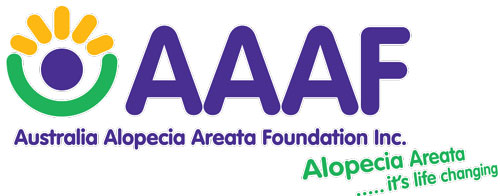Supporting family members with Alopecia Areata can be a deeply impactful way to show your care and understanding.
Alopecia Areata is an autoimmune condition that causes hair loss on the scalp, face, and sometimes other areas of the body. While it doesn’t affect physical health, the emotional and psychological impacts can be significant. Here’s a guide to help you support your loved one effectively.
Educate Yourself About Alopecia Areata
Understanding the condition is the first step in providing meaningful support. Learn about the causes, symptoms, and treatments for Alopecia Areata. This will help you empathise with your loved one’s experience and provide informed support.
– Causes: Alopecia Areata is an autoimmune disorder where the immune system attacks hair follicles.
– Symptoms: Sudden hair loss in round patches on the scalp or other parts of the body.
– Treatments: While there is no cure, treatments include topical medications, corticosteroid injections, and immunotherapy.
Listen and Offer Emotional Support
Your loved one may experience a range of emotions, including sadness, frustration, or anxiety. Be there to listen without judgment and offer a supportive space for them to express their feelings.
– Be Patient: Understand that they might not always want to talk about it.
– Validate Their Feelings: Acknowledge their emotions and let them know it’s okay to feel the way they do.
– Offer Reassurance: Remind them that they are not alone and that you are there for them.
Help Them Access Resources and Support
Guide your loved one to resources that can provide additional support and information.
– Support Groups: Encourage them to join support groups where they can connect with others who have Alopecia Areata. See the list of AAAF Support Groups here.
– AAAF Resources: Direct them to the Australia Alopecia Areata Foundation (AAAF) for information, support programs, and community events. See the list of AAAF Support Resources and Programs here.
– Mental Health Support: Suggest seeking help from a mental health professional if they are struggling emotionally.
Encourage Patricipation in AAAF Programs
AAAF offers various programs that can be beneficial for individuals with Alopecia Areata. Encourage your loved one to participate in these programs.
– “No Hair We Care” Packs: Care packages with headwear, skincare, books, and resources. Click here for more information.
– AAAdventure Camp for Kids: An annual camp where children with Alopecia can make friends and have fun. Click here for more information.
– Grant a Wig for Kids Program: Financial assistance for purchasing wigs. Click here for more information here.
Offer Practical Help
Sometimes, practical support can make a big difference. Offer to help with daily tasks or accompany them to medical appointments.
– Medical Appointments: Offer to go with them to doctor visits for support and to help remember information.
– Self-Care: Assist with finding suitable hair care products, hats, scarves, or wigs.
– Daily Tasks: Help with errands or household tasks if they are feeling down or overwhelmed.
Foster a Positive Environment
Create a supportive and positive environment at home and in social settings.
– Avoid Negative Comments: Steer clear of comments that may seem insensitive or dismissive.
– Celebrate Achievements: Acknowledge their successes and milestones, regardless of whether they relate to Alopecia.
– Promote Inclusion: Ensure they feel included and valued in social activities and family events.
Respect Their Choices
Respect your loved one’s choices regarding how they manage their condition. Whether they choose to wear wigs, scarves, or go without, support their decisions.
– Personal Choices: Support their decisions about treatments, hairstyles, or whether to discuss their condition with others.
– Privacy: Respect their privacy if they choose not to disclose their condition to everyone.
Supporting a loved one with Alopecia Areata requires empathy, understanding, and practical assistance. By educating yourself, offering emotional and practical support, and encouraging participation in AAAF programs, you can make a significant positive impact on their journey. Remember, your support can help them feel valued, understood, and less alone in their experience.

